🌍 Anthropology: Essential Concepts for Reading Comprehension
Anthropology, the study of humanity, offers a rich foundation for understanding the diversity of human cultures, behaviors, and societal structures. For Reading Comprehension (RC) passages, anthropology concepts are crucial for analyzing arguments about cultural practices, human evolution, and societal development. Familiarity with these topics enhances comprehension and critical engagement with complex texts that intertwine historical, sociological, and scientific perspectives.
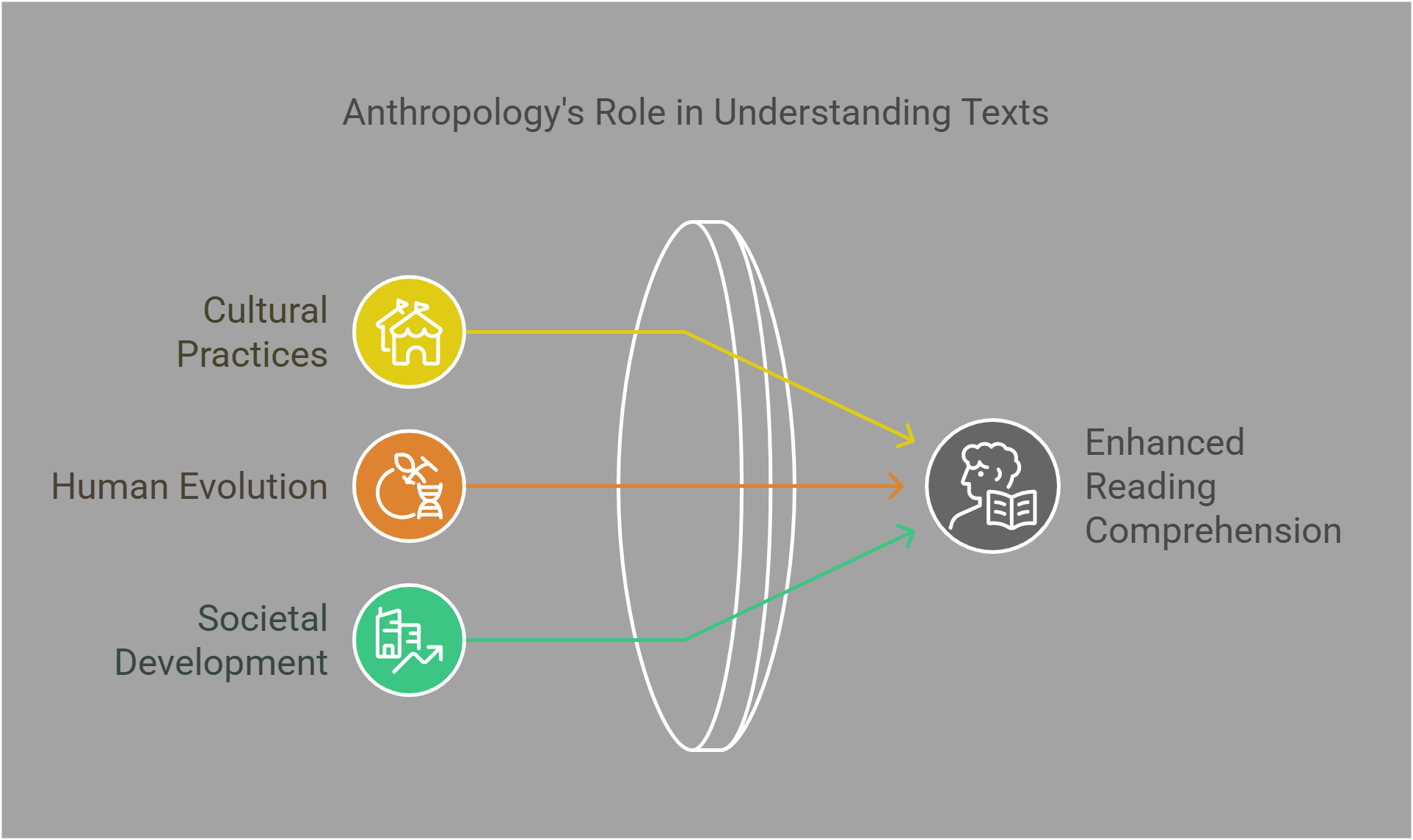
📋 Overview
In this guide, we’ll explore these key anthropology-related concepts:
- Cultural Anthropology
- Evolution of Human Societies
- Ethnography
- Linguistic Anthropology
- Archaeological Discoveries
- Social Anthropology
- Physical Anthropology
- Primatology
- Anthropological Theory
- Human Evolution
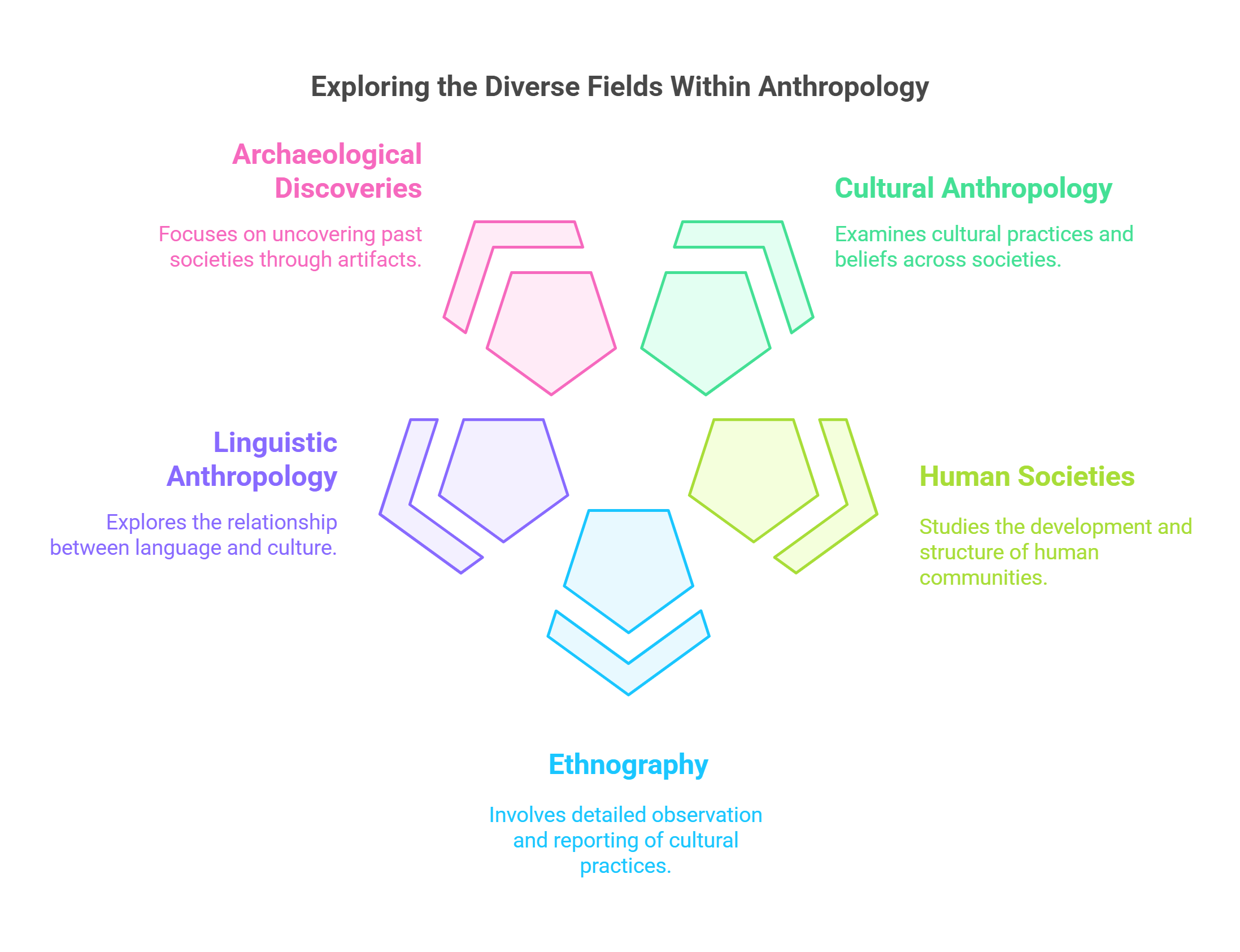
🔍 Detailed Explanations
1. Cultural Anthropology
Cultural Anthropology examines the diverse ways in which human cultures develop, interact, and evolve. It focuses on beliefs, practices, rituals, and social norms across societies. Anthropologists analyze how culture influences human behavior and shapes societal structures, providing critical insights into diversity and global interconnectivity.
- Explores cultural diversity and universals.
- Analyzes rituals, customs, and norms.
- Highlights human adaptation to environments.
- Studies how globalization affects traditional cultures.
- Reveals power dynamics within societies.
Explained Simply: Imagine every family has its own special recipe for a dish, and cultural anthropology is like understanding why those recipes are important and how they tell stories about the family.
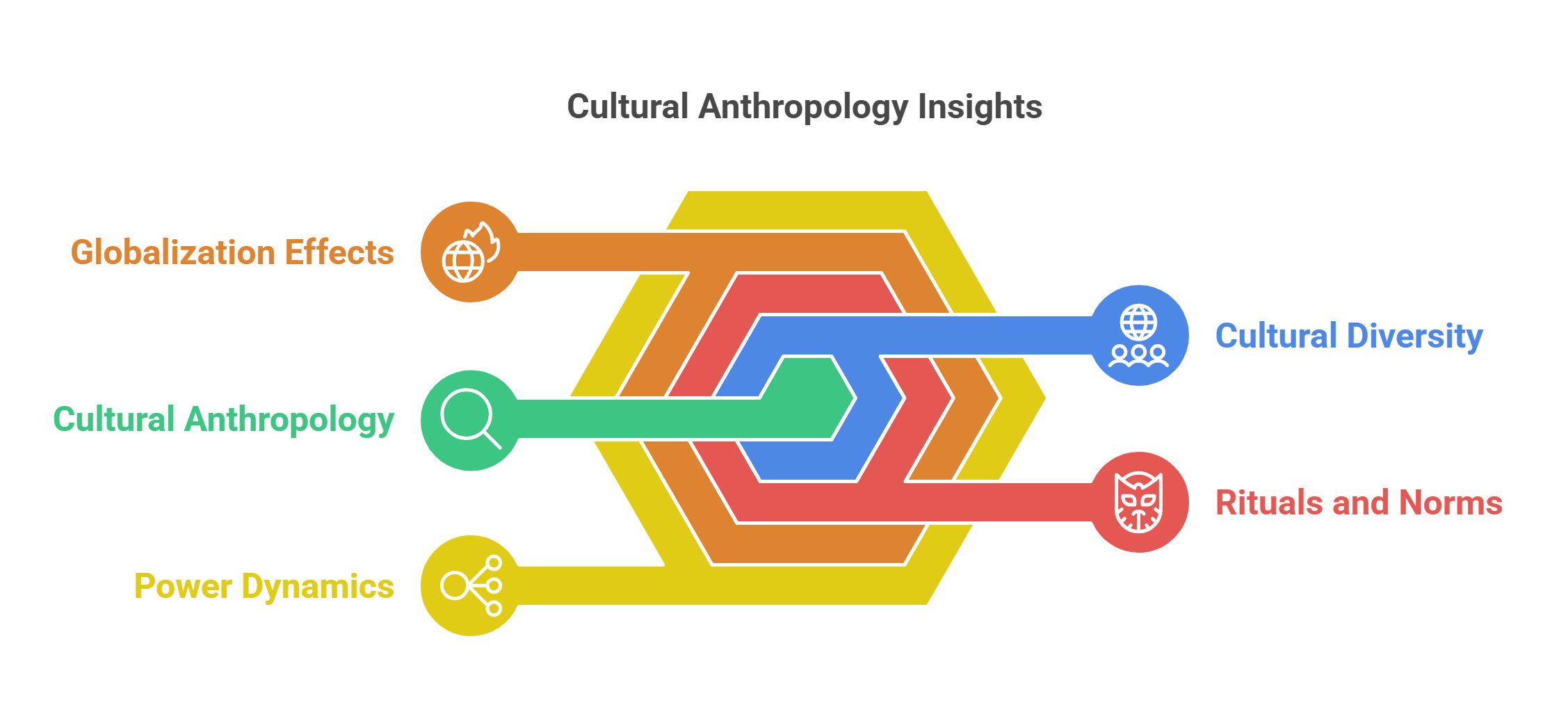
2. Evolution of Human Societies
This concept explores how human societies have transformed over time, from hunter-gatherer groups to complex civilizations. It examines the development of social hierarchies, technologies, and economic systems. By understanding these transformations, anthropologists reveal the patterns and forces that have shaped human history.
- Tracks societal progression from primitive to advanced systems.
- Studies the role of agriculture, trade, and urbanization.
- Analyzes the emergence of governance and laws.
- Highlights the impact of technology on social change.
- Links environmental changes to societal adaptations.
Explained Simply: Think about how people used to live in caves, hunt for food, and travel all the time. Over many years, they learned to farm, build homes, and form cities where they could live together.
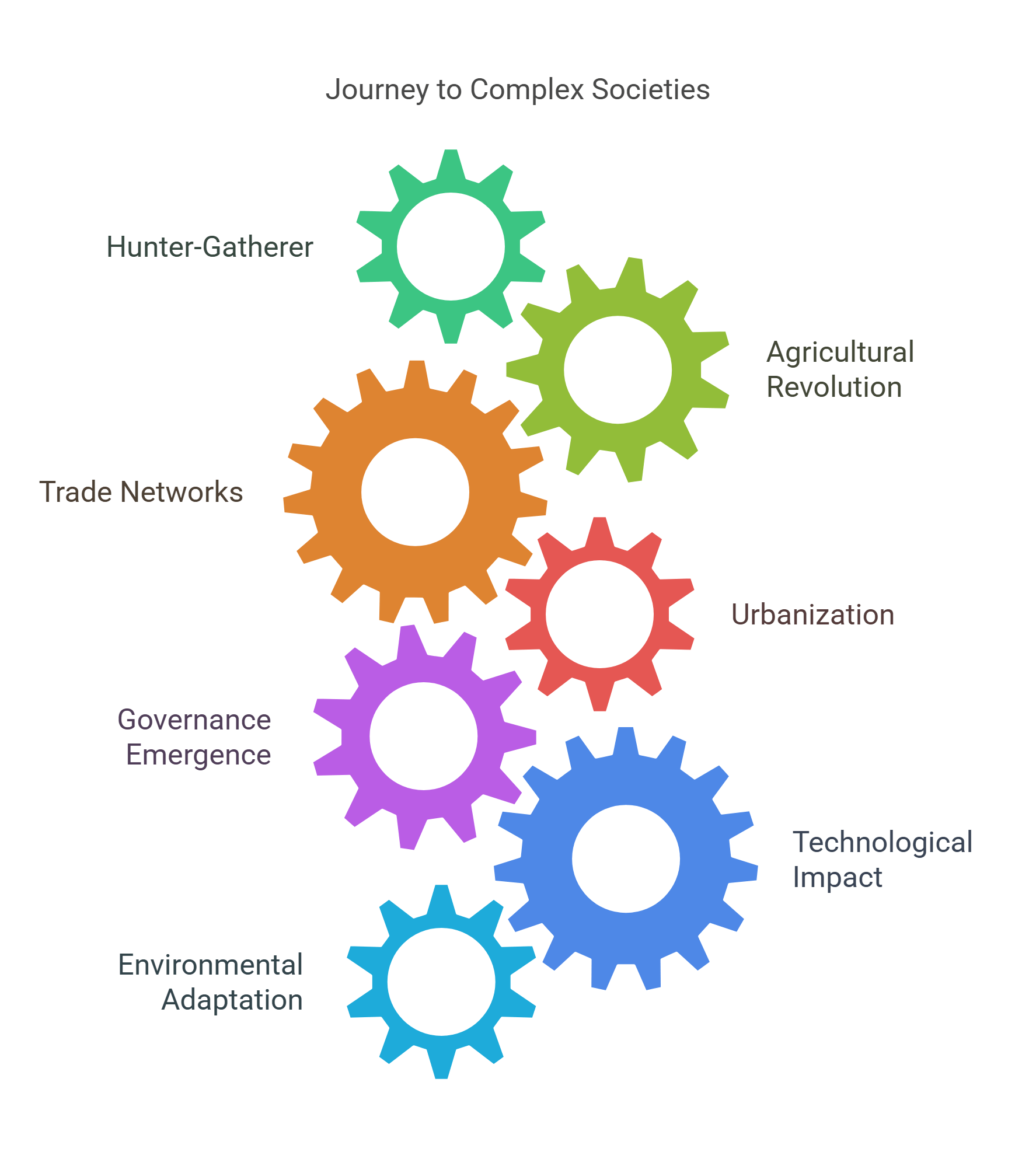
3. Ethnography
Ethnography is the detailed study of people and cultures based on fieldwork and observation. Anthropologists immerse themselves in communities to understand their way of life, often recording their findings in rich, descriptive accounts. It’s a cornerstone of anthropology for studying human behavior in natural contexts.
- Fieldwork-based research method.
- Focuses on understanding people within their cultural settings.
- Uses participant observation and interviews.
- Produces in-depth narratives about societies.
- Helps uncover insights about cultural practices.
Explained Simply: It’s like being a friendly visitor in someone’s home and writing down everything about how they live, what they eat, and what stories they tell.
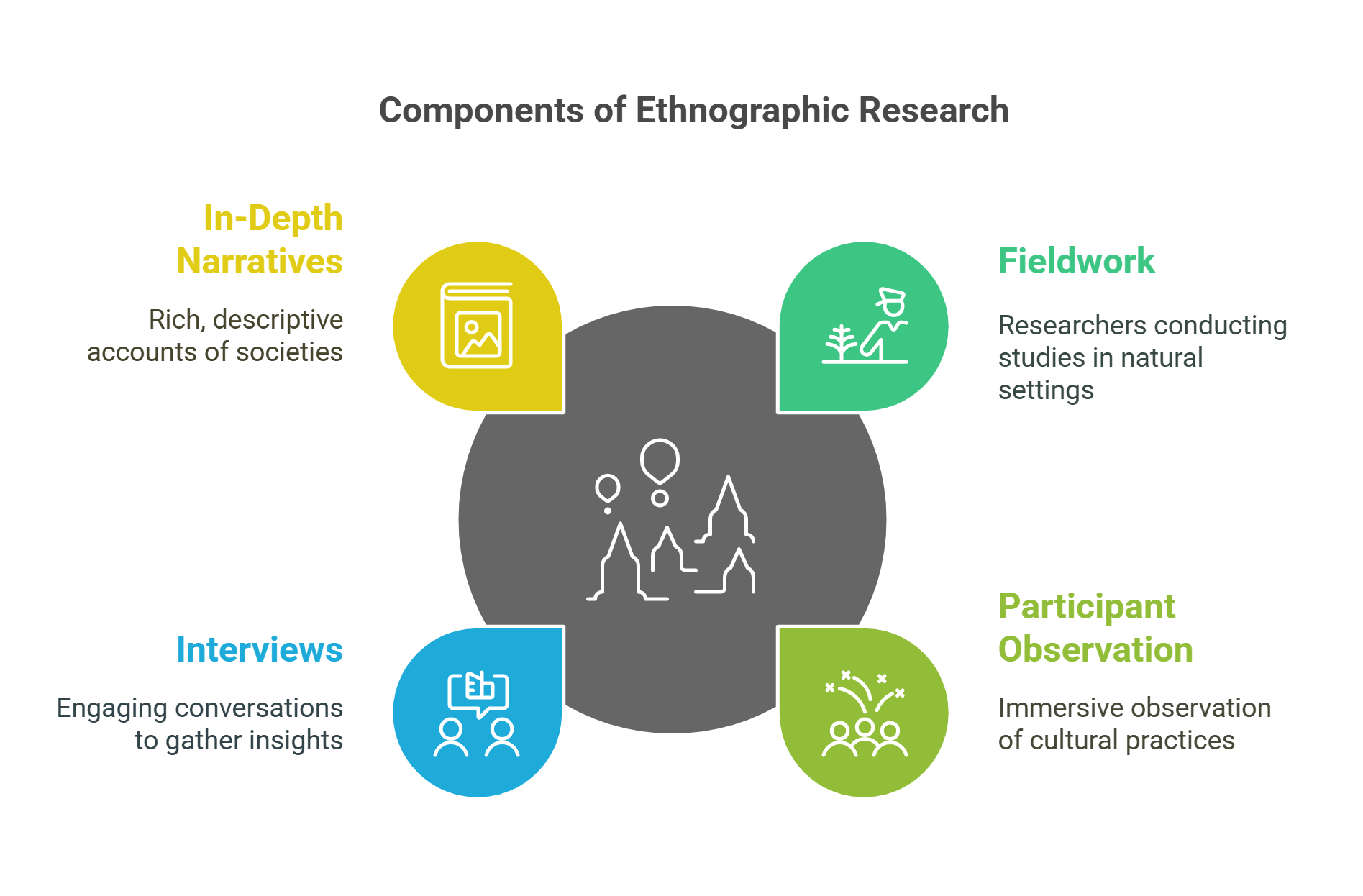
4. Linguistic Anthropology
This field studies how language shapes communication, culture, and identity. Linguistic anthropologists analyze how language influences thought, preserves traditions, and evolves over time. They also study endangered languages and their cultural significance.
- Examines the relationship between language and culture.
- Studies language diversity and evolution.
- Investigates how language influences identity.
- Explores communication styles and their social contexts.
- Protects endangered languages and their legacies.
Explained Simply: Imagine if every group of people had a special way of talking. Linguistic anthropology helps us understand why they use those words and how their language tells their story.
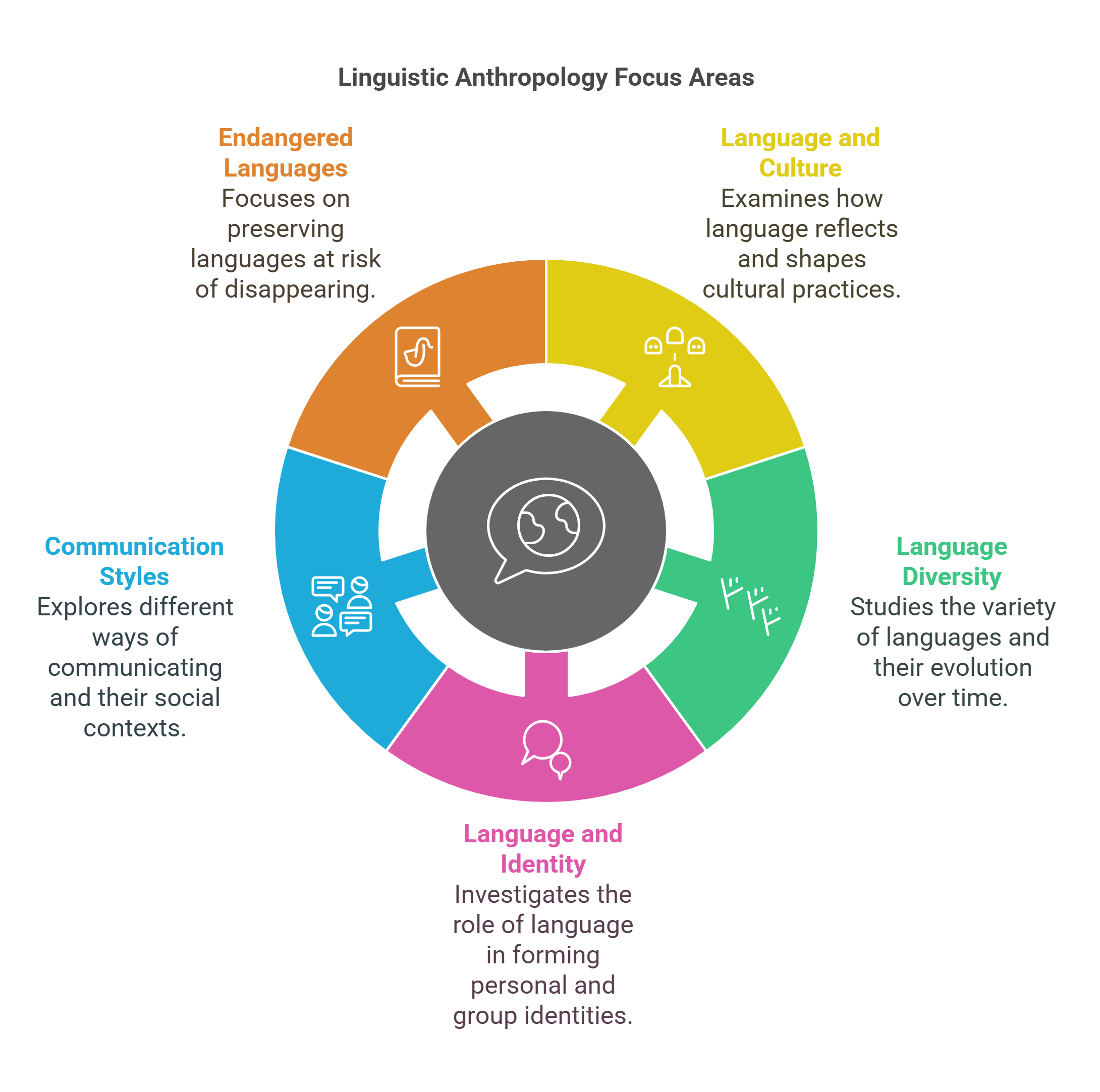
5. Archaeological Discoveries
Archaeology uncovers artifacts and remains to study past human life. It provides clues about ancient societies, their technologies, and their environments. These findings help reconstruct history and connect it to modern human development.
- Studies physical remains of past cultures.
- Reveals tools, art, and architecture of ancient societies.
- Provides evidence of human evolution and migration.
- Links past technologies to societal growth.
- Preserves cultural heritage through excavation.
Explained Simply: It’s like being a treasure hunter who finds old things buried in the ground, like toys or tools, and then figures out how people lived long ago.
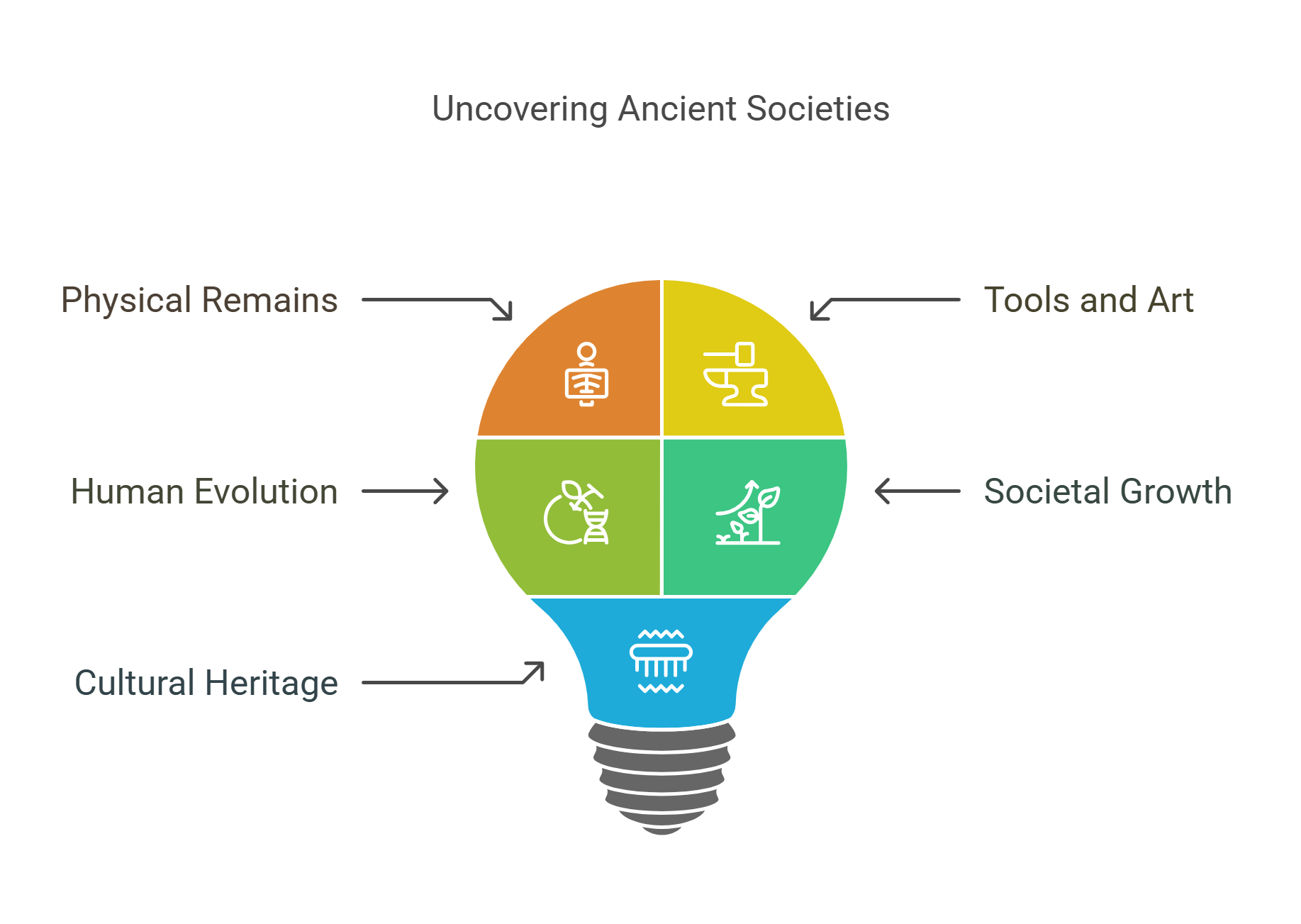
6. Social Anthropology
Social anthropology focuses on social relationships, institutions, and cultural practices. It examines how humans organize themselves in families, communities, and nations, studying roles, rituals, and societal rules.
- Studies family, kinship, and social roles.
- Explores social norms and rituals.
- Analyzes power dynamics and governance.
- Examines how societies respond to change.
- Highlights the role of religion and belief systems.
Explained Simply: Think about how families work together, like parents, kids, and friends. Social anthropology helps us understand how all these groups stay connected and follow rules.
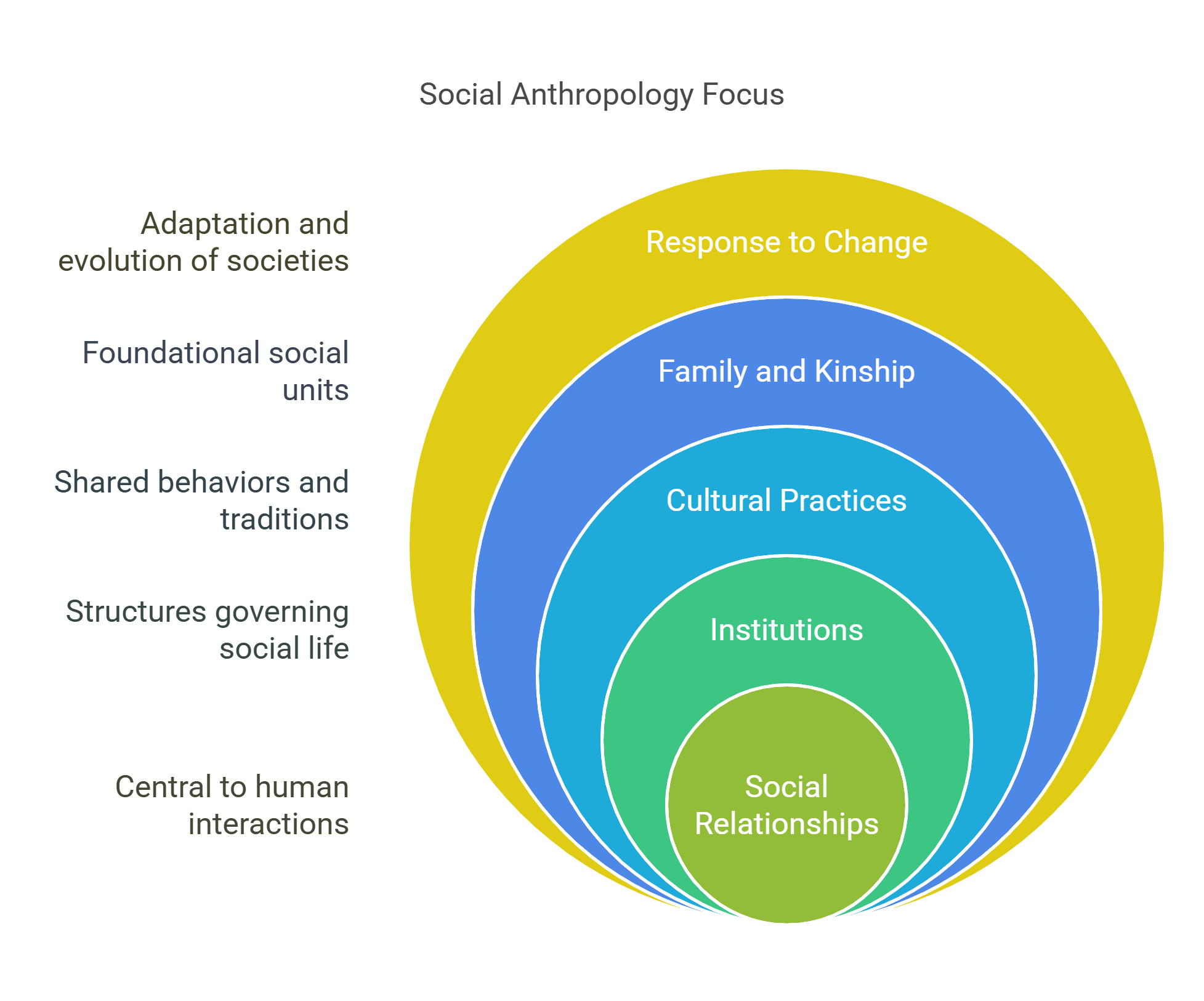
7. Physical Anthropology
Physical anthropology studies the biological and physical aspects of humans and their ancestors. It examines evolution, adaptation, and diversity in human populations, connecting biology to culture and behavior.
- Focuses on human evolution and genetics.
- Analyzes fossils and ancient remains.
- Studies physical traits and adaptation to environments.
- Connects biology to cultural practices.
- Explores human diversity and commonalities.
Explained Simply: It’s like looking at old bones to learn how people changed over time and why they look different in different parts of the world.
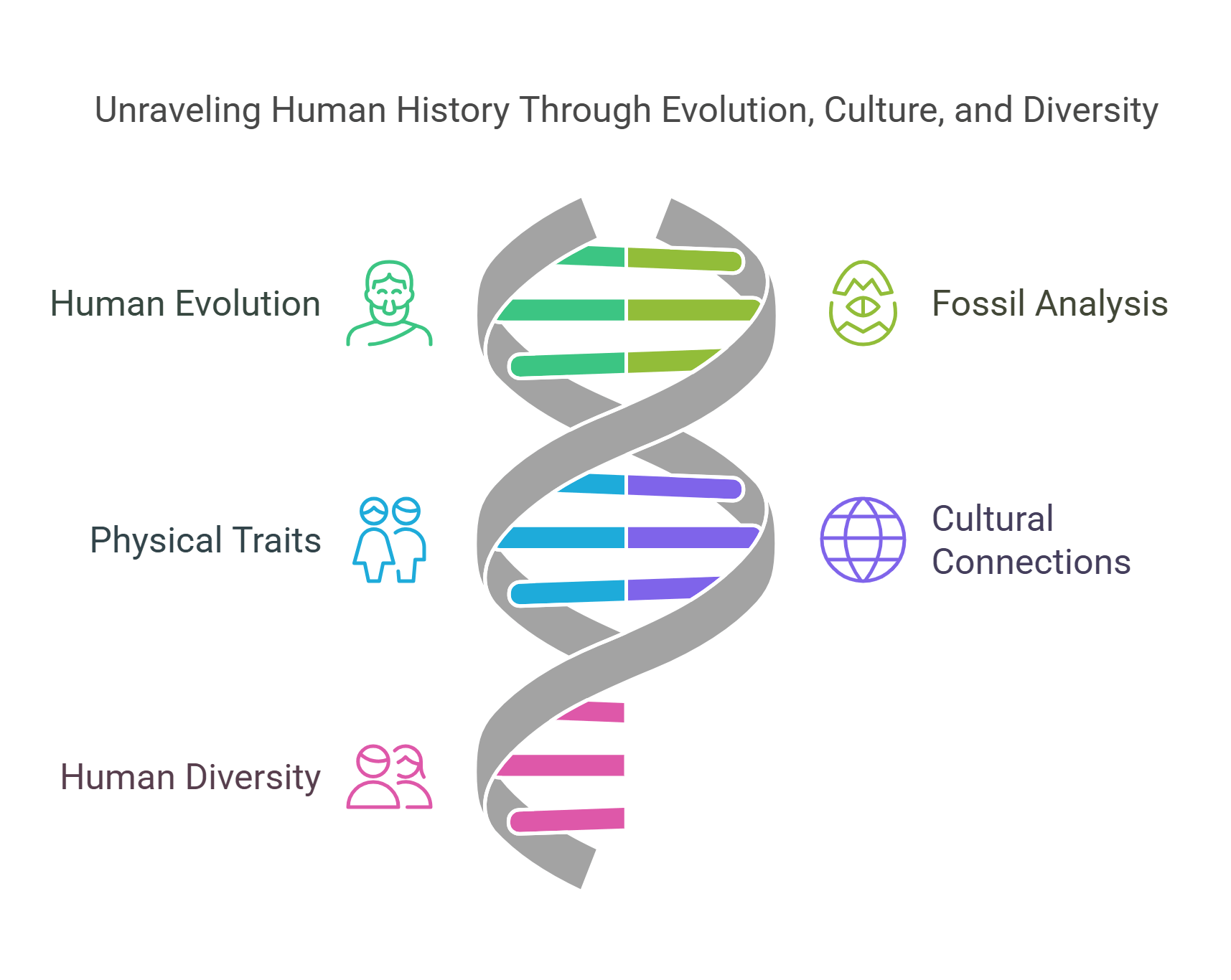
8. Primatology
Primatology is the study of primates, our closest animal relatives. It explores their behavior, social structures, and biology to understand the roots of human evolution and social systems.
- Studies monkeys, apes, and their behavior.
- Links primate biology to human traits.
- Explores social dynamics in primates.
- Provides insights into early human ancestors.
- Highlights conservation needs for primate species.
Explained Simply: Imagine watching monkeys to learn how they live together, take care of their families, and solve problems—kind of like us!
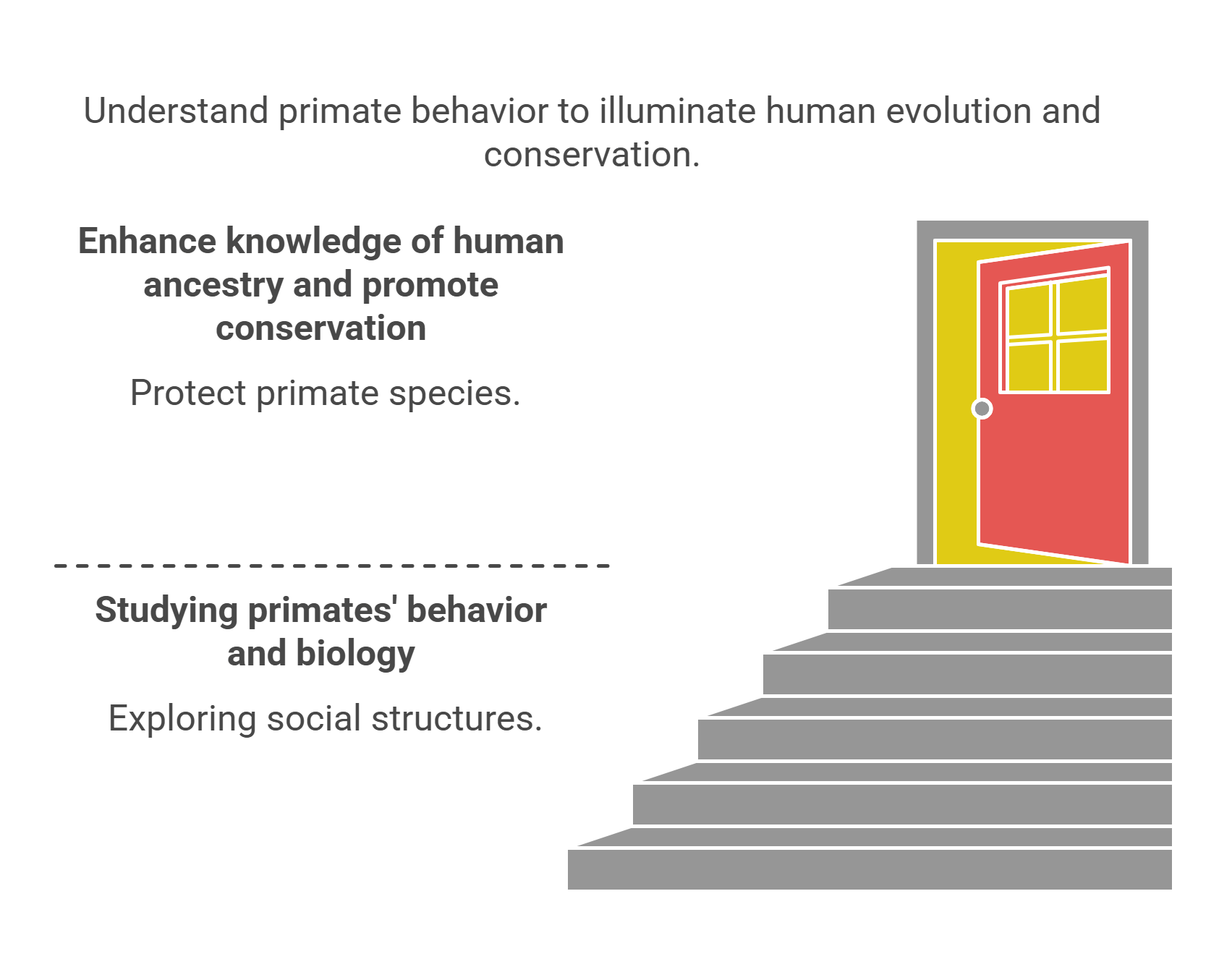
9. Anthropological Theory
This area explores frameworks used to study and interpret human cultures and societies. Anthropological theories provide tools to analyze human behavior, from functionalism to structuralism and postmodernism.
- Provides methods for studying cultures.
- Includes theories like functionalism and cultural materialism.
- Analyzes how societies create meaning.
- Links historical perspectives to modern issues.
- Helps interpret cultural differences and similarities.
Explained Simply: It’s like putting on a special pair of glasses to see why people do the things they do and how their world makes sense to them.
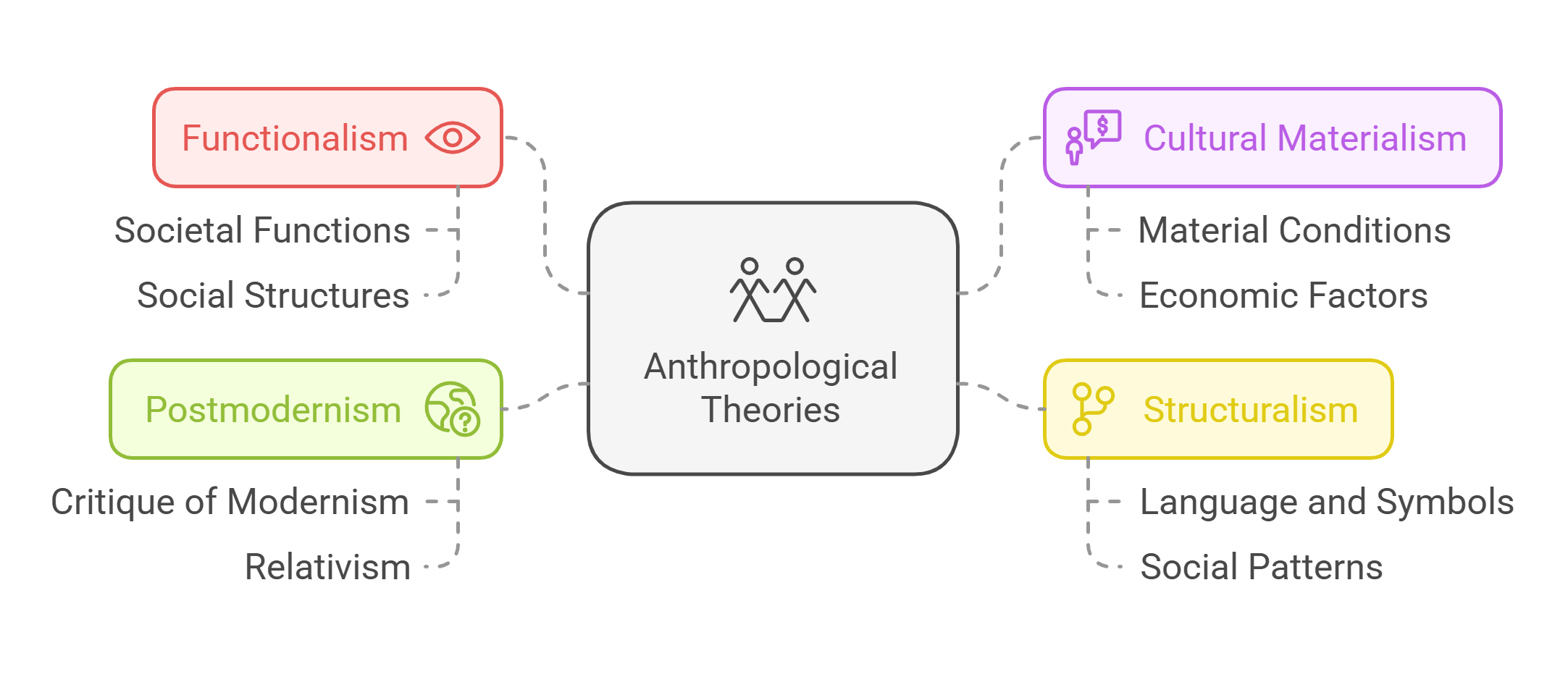
10. Human Evolution
Human evolution traces how humans developed from earlier species over millions of years. It studies fossil records, genetic data, and environmental changes that shaped our species.
- Tracks the journey from early hominins to modern humans.
- Explores adaptations like walking on two legs.
- Uses fossils and DNA to map evolutionary paths.
- Studies interactions with environments and other species.
- Highlights ongoing evolution in humans.
Explained Simply: It’s like piecing together a giant puzzle to learn how we started as cave people and became who we are today.
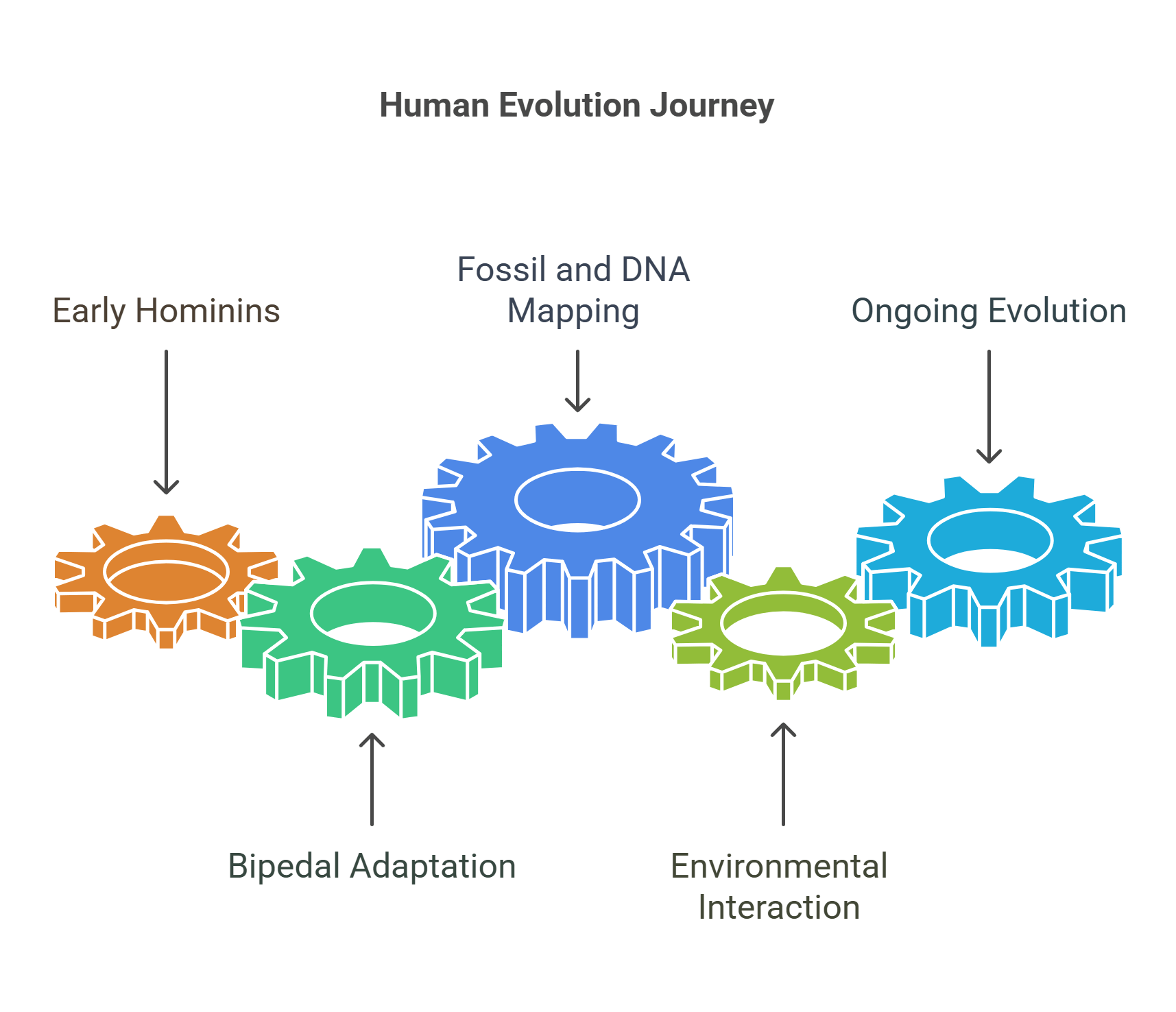
✨ Conclusion
Anthropology’s concepts enrich your ability to engage with RC passages on human cultures, evolution, and societal dynamics. By mastering these ideas, you’ll develop a sharper analytical lens for dissecting arguments, identifying evidence, and appreciating the intricate tapestry of human life.













